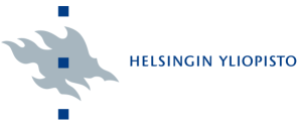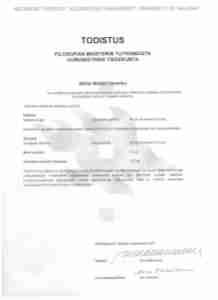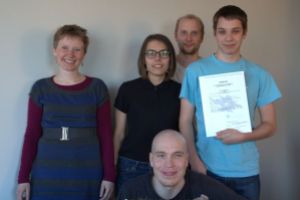 The average age of the MediaWiki developers is quite young. They often started contributing to the MediaWiki code while still in school or university. When their contributions show promise, they are sometimes asked to contribute to particular projects. This has resulted in the hiring of students and they continue to do professionally what they at first did as a hobby.
The average age of the MediaWiki developers is quite young. They often started contributing to the MediaWiki code while still in school or university. When their contributions show promise, they are sometimes asked to contribute to particular projects. This has resulted in the hiring of students and they continue to do professionally what they at first did as a hobby.
While the Wikimedia Foundation is happy with the talent it gains in this way, it feels strongly that finishing formal education is very important. Some students only work for the WMF in their holidays while others manage regular contributions in their free time as well. Such relations are often strengthened through programs like the Google Summer of Code or through summer internships.
Niklas Laxström recently finished University and this happy occasion is reason enough to interview him. As you may know, he works for the WMF Localisation Team and his claim to fame is that he started what became translatewiki.net. Niklas has been instrumental in much of the internationalisation and localisation development for the MediaWiki software.
Thanks,
Gerard Meijssen
Internationalization / Localization outreach consultant
 Congratulations, master Niklas. You finished university !! What did you study and what is your exact title (in Finnish)
Congratulations, master Niklas. You finished university !! What did you study and what is your exact title (in Finnish)
I studied language technology with minors in Finnish language, Computer Science, East-Asian studies and collection of Russian language courses. I’m now Master of Arts, filosofian maisteri.
You started with what became translatewiki.net before you started university. How did your study influence the development of translatewiki.net
Before university I had a hobby project for inflecting Finnish nouns. It wasn’t successful nor had it a good design, but it started series of events, which caused me to start studying language technology.
My studies were pretty heavily biased in hard language processing: for instance syntactic parsers, finite state technologies and morphologies. however, the open source language technologies are not yet in a level where that kind of processing can just be plugged into any software.
Learning about variation in languages has been very useful to me. It helps avoiding solutions that only work for limited number of similar languages. I learned most of that in linguistics courses but also by studing several dissimilar languages. l also liked the isolated courses about copyright, terminologies and string processing, which turned out to be useful in different situations.
On the other hand, working with MediaWiki and translatewiki.net has given me enormous amounts of practical experience all over computer
engineering, which helped me to perform better in engineering related courses.
 You are now a fully qualified linguist. What do you consider the biggest linguistic challenge we are facing you
You are now a fully qualified linguist. What do you consider the biggest linguistic challenge we are facing you
Not exactly a linguist, more like a language engineer. The language support in MediaWiki is nothing to be ashamed of. That said, there is a huge difference between languages on how readily they can be used on a computer.
This involves everything from search to fonts and input method and from optical character recognition to speed synthesis. The biggest challenge is to identify solutions that help to bridge that gap for as many languages as possible.
What is it that you do for the Wikimedia Foundation
I continue doing what brought me to MediaWiki: making the translation process easy and fast. This includes a lot of i18n (making the software translatable) and facilitating l10n (adapting and translating the software to particular language and culture).
It is absurd that localisation is simultaneously one of the biggest strengths and weakness of open source. While it enables using computer in anyone’s mother tongue, the processes and tools used for localisation tend to be difficult to use if not outright preventing good localisation.
You participated at the Multilingual Web conference in Luxembourg. What value do we gain from visiting conferences like this
Generally conferences are about discussions and sharing of experiences: we learn what others do and we let others know what we do. The ultimate purpose is to learn new things and find ways to work together to to reach goals we wouldn’t be able to reach otherwise. Meeting new people and enjoying the local culture makes it fun and interesting.
In this case we had a chance to learn, discuss and affect standards that on the other hand let us support languages better and dictate the limits of what we can do in the near future.
Standards play an important part in translatewiki.net and in MediaWiki. What standards do we use and for what
We usually make our own best practices for what we do, to get stuff done. That said, we are not looking to reinvent the wheel just because we can. We rely on standards all over the place starting from basic things HTTP and HTML but specifically we do use and support standard i18n file formats, language codes and other common practices like tagging our content with language codes.
The CLDR repository is especially problematic, because on the one hand it contains lots of data we don’t want to duplicate, but on the other
hand it is missing so much data that we need and could provide, but are currently not able to push back into CLDR.
As a member of the WMF Localisation team you care about language support. How much of a difference does the team make ?
We have talked a lot about how to measure the impact of what we do. We do not have any numbers currently. There are so many things we would
want to fix but we can’t possibly do them all. We have chosen issues that we want to fix: two examples of that are the spreading use of Narayam for inputting text and WebFonts for displaying text. The fact that communities request those extensions to be enabled on new projects says to me that we have made something that is useful and wanted.
It is also worth mentioning that we are raising awareness of i18n and l10n inside Wikimedia Foundation. WMF can sometimes be ignorant about
i18n, especially when it comes to software. Our efforts are not a replacement for the language communities making noise themselves to make sure they are heard. We advise and provide WMF the tools to tackle the complex issues of deep multilingualism.
What language support challenges do you want tackled
I am very much looking towards to implemeting the planned language selector, which has been specifically desgined to fit our special needs.
In slightly longer term, I would be happy to see our lack of support for proper collation (sorting) sorted out.
Now that you finished university, what would you like to study next
I want to upkeep my language skills, especially Russian. I do not have immediate plans to continue with postgraduate studies. But one never stops learning.
Can you tell us a joke about linguists
Not exactly a joke, but I’m not sure whether I should be proud or ashamed of this.

Can you help us translate this article?
In order for this article to reach as many people as possible we would like your help. Can you translate this article to get the message out?
Start translation